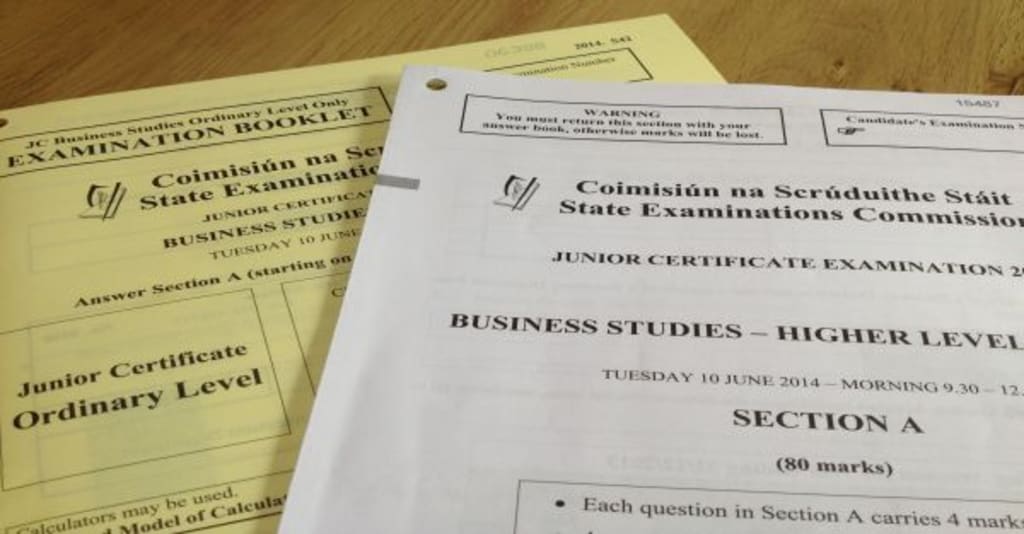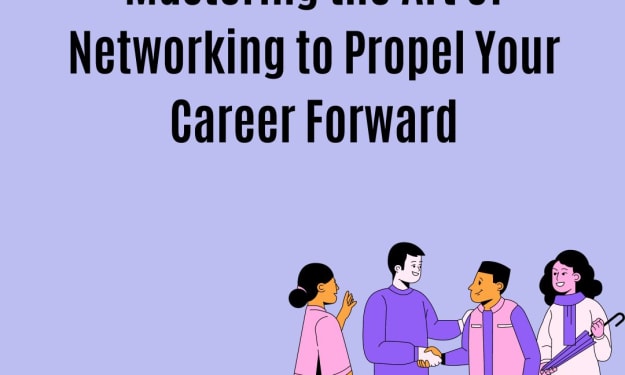What They Didn't Tell You When You Finished College
An Insight Into the Information That Your Teachers Forgot to Give You on What Path You Should Be Taking in Life

So. You've just left 15 years of education. You spent around 7 hours a day learning different subjects and the only care in the world you had is what you were doing when you walked out of those gates at 4 PM. Well, I hate to break it to you... but you've been thrown in at the deep end. "What now?" you may ask. Well, there are three options.
1) Go on to university.
Now staying in education is probably the more expensive route and you'd have had to get good A levels in order to be accepted to a university. But that's why they have a little thing called the "student loan" and that's what you'll be paying back for the rest of your life so you have to make sure that this is what you want and it's not just because "Barbara's daughter down the road has been accepted to Cambridge" and your mother wants any form of bragging rights herself.
Pros:
Now the pros are easy. Student Finance England will help take care of the costs so you won't have to worry about those daunting prices that the universities charge. You will meet a ton of new people and there will be parties and hangovers galore so your social life will be better than ever. But most importantly you will have a set goal in life to get that degree and you'll be able to work towards it while having the time of your life.
Cons:
For the cons, the main worry is being able to fund your social life when you're studying full time, so you will still have to work and that will most likely cut the social life you've been dreaming of short. It's also really easy to forget why you're at University in the first place so you'll be constantly thinking of excuses not to study and wondering whether you made the right choice.
2) Work full time.
Working full time can be scary. You probably don't have many skills and getting any form of career just from your A levels will be hard, especially if the field you were dreaming of studying in needs a degree. Now I can tell you that it is do-able, but it's whether you want to spend more years to work your way up from the "coffee girl" to "Head of Sales" within a company than you maybe would if you applied with a degree.
Pros:
No student loan. This is definitely a pro; people always say that student loans don't really affect you because you have to be earning over £21,000 a year before you start paying them back, but the average UK salary now is £27,271, so that money will be coming out of your paycheque before you know it. You will also gain a massive insight into the workings of your chosen trade and will have a head start to move up in the company sooner than all your graduate friends who haven't even started their career yet.
Cons:
You've just left 15 years of education. Do you really feel like you're going to be able to grasp the 9-5 routine? Scrolling down your Instagram feed during your lunch break and seeing pictures of all your friends during freshers week having the time of their life is going to make you think you made the wrong decision. I mean, who's to say you'll even be in a 9-5 job in the career you want. It's more than likely that you won't have the skills or experience for it so you may end up in a completely different field.
3) Apprenticeship
The last choice is an apprenticeship, which is kinda like the best of both but it has a lot less partying. You'll be working within a trade you like and you'll be learning on the job. There may even be other apprentices working with you so there may be more people that are your age.
Pros:
The biggest pro is that you are being paid to learn. Not only this but you are getting the skills that all employers are looking for. Ever tried to apply to a job and it says "At least 2 years experience." Well when your graduate friends try to apply for the same job as you, who's going to have the experience and who isn't?
Cons:
I bet you're wondering why this wasn't the first option because how can you go wrong with the best of both, but every good thing has a catch and this one is the pay scale. £3.70 an hour is the measly wage that apprentices get. It's understandable seeing as you're getting free education and the opportunity to work in a profession that you may not get the chance to otherwise, but when you're working 30+ hours a week on such a small income there's no way you can become independent for another few years.
Overall, the decision is up to you. What is going to work best for you? Are you looking for a job in neuroscience? Because then trying to go straight into work isn't exactly the way to go. Or maybe you're looking for an administrative career, which by all means jump into or even find an apprenticeship. I find that when you're leaving college, the main push is to get everyone into a university, but honestly, there are other options out there so you just need to pick the right one and have fun.






Comments
There are no comments for this story
Be the first to respond and start the conversation.